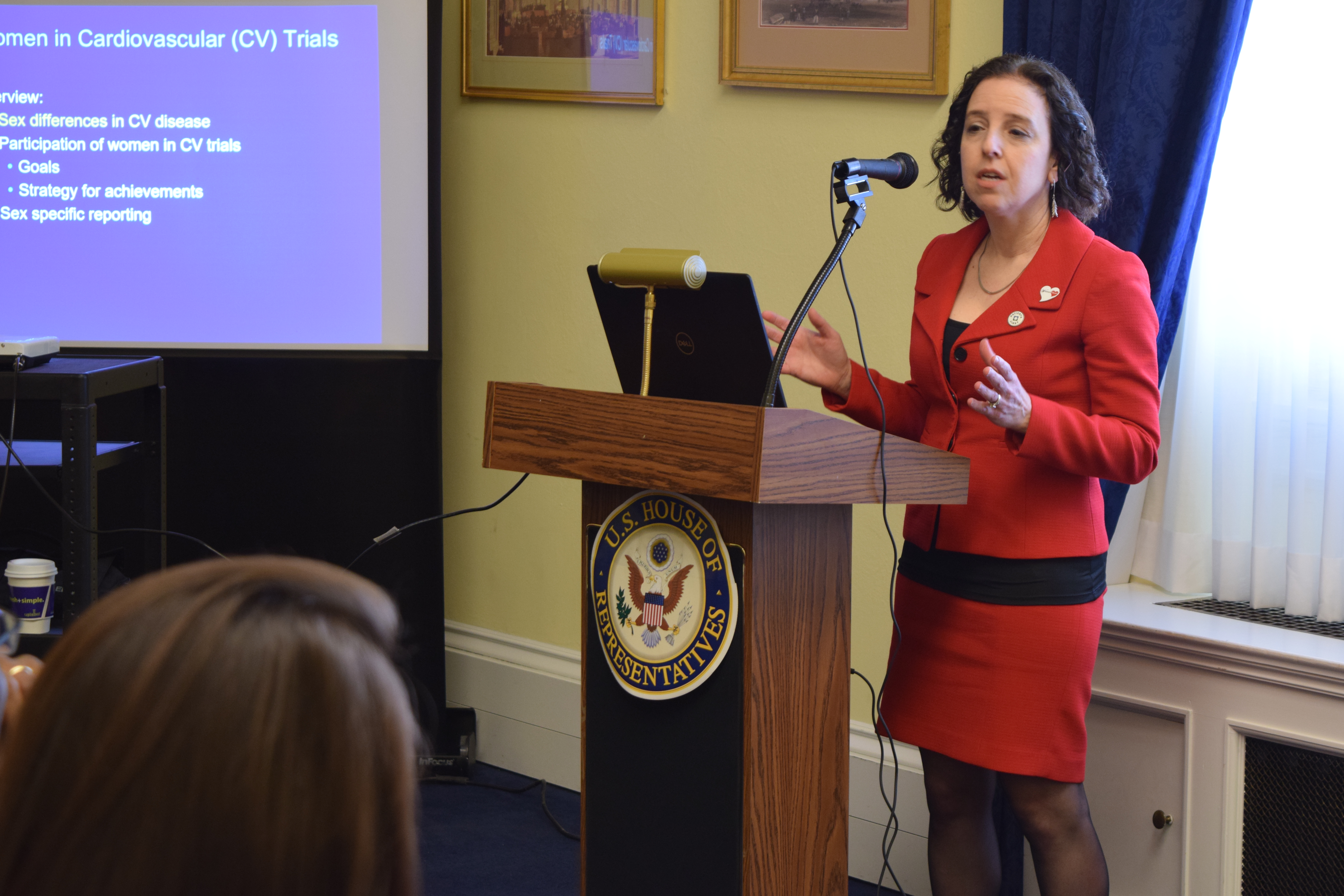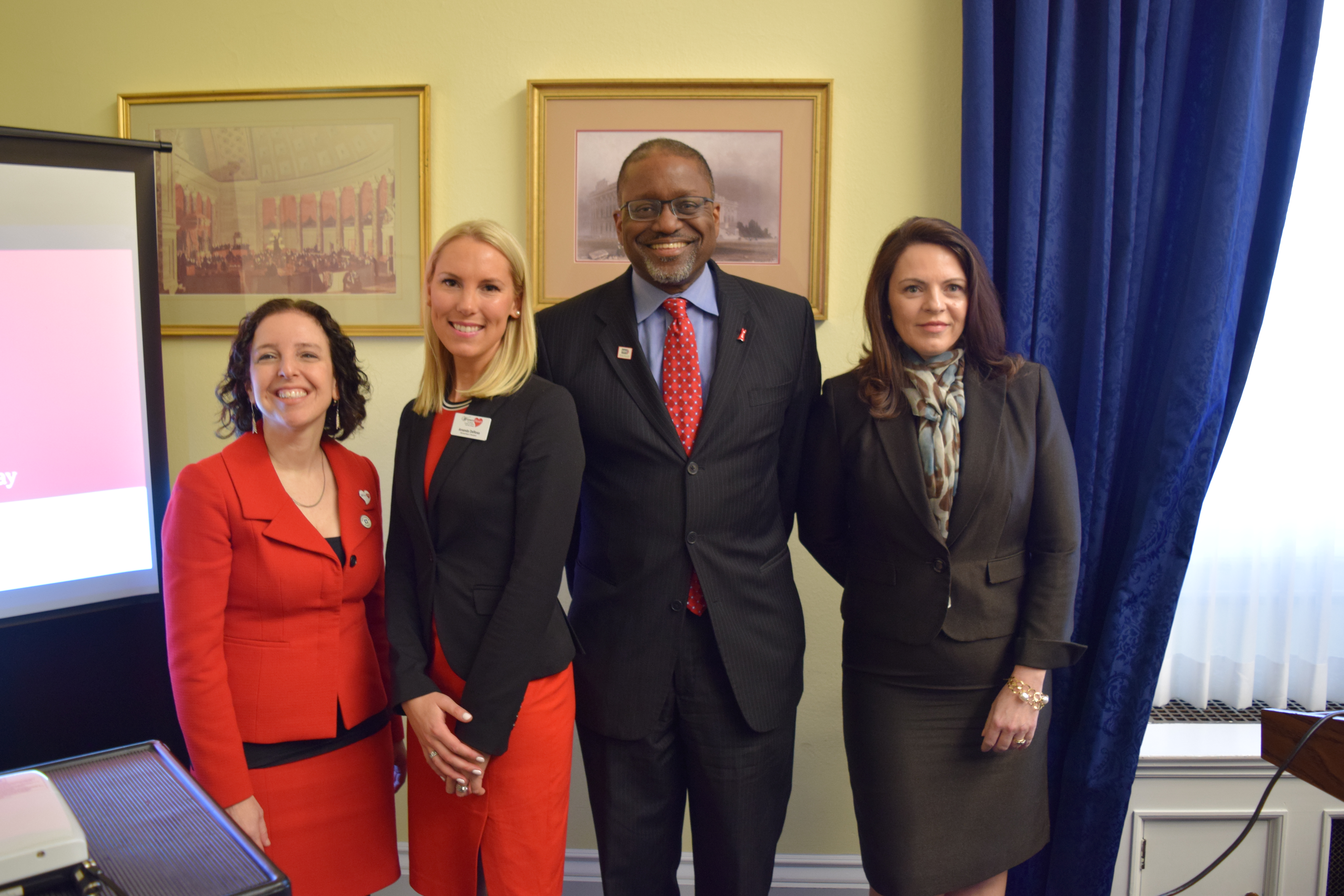 As we close out Heart Month 2019, WomenHeart hosted a briefing on Capitol Hill focused on Women’s Inclusion in Cardiovascular Research. Partnering with the American Heart Association and Rep. Katherine Clark (D-MA), we aimed to educate and inform members of Congress and their staff about efforts in recent years to be more inclusive of women in medical research and to report sex differences from that research, as well as the implications for treating women with heart disease when women are left out.
As we close out Heart Month 2019, WomenHeart hosted a briefing on Capitol Hill focused on Women’s Inclusion in Cardiovascular Research. Partnering with the American Heart Association and Rep. Katherine Clark (D-MA), we aimed to educate and inform members of Congress and their staff about efforts in recent years to be more inclusive of women in medical research and to report sex differences from that research, as well as the implications for treating women with heart disease when women are left out.
Dr. Eileen Hsich, WomenHeart Scientific Advisory Council Chair and cardiologist at the Cleveland Clinic, spoke about the concerns of treating women for specific conditions, like heart failure, when the research on treatment options doesn’t include enough women. She warned that ignorance about the impact of a specific drug or device on women can lead to harm. WomenHeart Champion Amanda DeRosa shared her personal story of living with congenital heart disease and participating in a trial. She spoke passionately about how participating was empowering, knowing that she would be helping future generations of people living with her same condition.

Dr. Eileen Hsich, WomenHeart SAC Chair and cardiologist at the Cleveland Clinic, speaking about women’s inclusion in cardiovascular research.
Other speakers included experts from the National Institutes of Health (NIH) and Food and Drug Administration (FDA). WomenHeart Chief Operating Officer Calondra Tibbs and Director of the National Heart, Lung, and Blood Institute (NHLBI) at NIH Dr. Gary Gibbons welcomed the Hill staffers and advocacy partners in the room by sharing information about their work and noting that heart disease remains a serious threat to women’s lives, making it more important than ever that women are reflected in medical research and clinical trials.
Legislative measures in recent years have mandated that federal research agencies continue to encourage greater inclusion of women and people of color in research, that they report out inclusion rates, and that researchers provide findings of sex differences in their studies. Dr. Nakela Cook, Chief of Staff at NHLBI, spoke about NIH efforts in that regard and the Women’s Health Initiative, which helps address sex differences in cardio-vascular disease (CVD) research. Dr. Marjorie Jenkins from the Office of Women’s Health at FDA reported on recent research into women’s participation in CVD trials approved by FDA. The findings reveal that women are well represented in clinical trials for hypertension and atrial fibrillation (A-Fib), but under-represented in clinical trials for coronary heart disease and heart failure.
Staffers left with both a better understanding of the issue and a call to action. Congress and advocacy partners must continue to support and partner with NIH and FDA to strengthen and grow their efforts to promote full inclusion in research, holding them accountable for making continued progress. . Further, Congress should pass legislation that addresses barriers to participation, including bills like the CLINICAL TREATMENT Act (HR 913). That bill would ensure states cover routine care costs of participation in an approved clinical trial for Medicaid enrollees with life-threatening conditions like heart disease. Finally, research agencies, providers, patient advocacy organizations, and others all need to do more to encourage full representation and participation in medical research and clinical trials.




